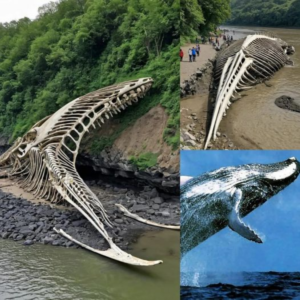In a remarkable discovery that bridges the worlds of ancient history and marine biology, a whale skeleton has been unearthed in the sun-baked dunes of Egypt’s desert. This extraordinary find sheds light on a time when this arid landscape was submerged under a vast prehistoric ocean.
The skeletal remains, astonishingly well-preserved, belong to a species that once thrived millions of years ago when the region was part of the Tethys Sea. Paleontologists believe that this whale, likely a Basilosaurus or a related species, roamed the ancient waters during the Eocene epoch, approximately 40 million years ago.
The skeleton, partially embedded in the golden sands, paints a vivid picture of an era when marine giants ruled the waves in what is now one of the hottest deserts on Earth. This discovery is not only a testament to the ever-changing nature of our planet but also a reminder of the ancient creatures that have shaped our natural history.
As researchers continue to study the fossilized remains, this find is expected to provide invaluable insights into the evolution of marine mammals and the environmental conditions of the Eocene epoch. The stark contrast between the arid desert and the aquatic life it once supported adds a profound dimension to our understanding of Earth’s dynamic history.
This discovery is set to capture the imaginations of both scientists and the public, offering a glimpse into a world long forgotten, where whales once swam through what are now Egypt’s scorching sands.





